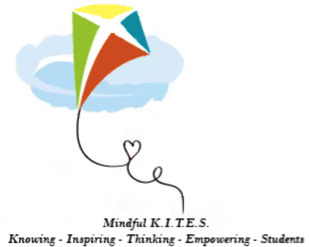
On March 13, 2020 the Prime Minister announced that schools were to be closed to help reduce the spread of covid-19. While many children, mine included, initially celebrated the unexpected early Easter break, as the stay at home measures continue to be extended, children may now experience various emotions as a result of the social distancing. Some children may feel sad that they are not getting to see their friends or visit family members. Others may be frustrated that they cannot go to football or dance or other activities they were accustomed to. Some children may be worried that they or someone they love may contract the virus. Or they may just feel overwhelmed by the whole situation, as many adults are feeling as well. Human beings are social creatures, so this sudden change in the way we interact with one another can be challenging for all of us to cope with, particularly our little ones.
Talk to your Children
For parents to best support their children during this time, it is important to consider how they are experiencing this new world. Talk to your children about the pandemic honestly with age-appropriate information and ask them questions to see what they understand. Be mindful of what you are communicating with your tone of voice and body language when you are speaking about the current crises directly or around your children, as they will be looking to you for reassurance that all will be well. Give them an opportunity to ask their questions and be sure to validate their feelings. You can also ask for their input on how you can help them to feel better because maybe what they need from you at this time is different. Ultimately despite everything happening around us, our children still want to feel safe, noticed and loved.
Nurture Yourself First
Whether we are conscious of it or not, if our children are experiencing difficult emotions at this time, it is likely they are sensing our feelings. Parents may be worried about the financial impact of this virus, exasperated about trying to balance working from home and educating, entertaining and (constantly) feeding their children, concerned if they are going out to work or for essentials that they bring the virus home with them and generally anxious about this new normal.
This is not business-as-usual and it is important to acknowledge the many emotions that you may be feeling and give yourself some additional self-care. Whether it is additional time for prayer and meditation, taking time to journal to process your feelings or taking a moment to take some deep breaths, know when you need the space. After all, we can’t pour from an empty cup and we are also indirectly teaching our children tools to cope with difficult situations.
Keep a Routine
It may not seem that way, but children actually thrive on a routine. It may not need to be the same routine as pre-pandemic, but having a structure to the day that includes wake up, meal and sleep times, education, free time and family activities, helps children to feel grounded. And children like to have some sense of control, so give them the opportunity to help create the schedule and the activities they would like to include.
Encourage Connection
While we need to isolate from those outside of our households, we can encourage lots of cuddling within the household. Physical connection helps children to feel secure and can even calm their heart rate. Have you noticed your little ones a little more clingy? Of course it is important to take the necessary precautions, if there is anyone in the household exhibiting symptoms of the virus or is considered a high-risk.
Thanks to technology we can encourage a lot of online connection as well with Whatsapp video calls to grandparents, group chats on Google Hangouts with friends or even birthday parties on Zoom.
If your schedule has been more challenging because of the pandemic, this may seem difficult to fit into your busy day. However it is the quality of the connection that is more important. So put away the devices and carve out some time for family activities and one-on-one time with each child separate from your work time. Family activities can include outdoor activities if you have a yard or exercise indoors which is good for everyone’s physical and mental health. Even bringing everyone into the kitchen, sure it creates more mess, but it will also teach them valuable life skills for the future.
Create Opportunities for Accomplishments
It may seem like your children are content on YouTube or on video games all day, but intrinsically children want to feel accomplished. This is a great time to encourage your children to be more independent and support around the house from setting the table to being in charge of breakfast. Encourage them to use this opportunity to learn in a different way by challenging them to discover more about a topic that is interesting to them or to practice their music, drawing or dance.
No one knows how long this social distancing will last or the impact of this pandemic will have on our children’s mental health in the future. However, being a mindful and attentive parent, aware of your own emotions and tuned into the needs of your children, will help your family to navigate these uncertain times.
